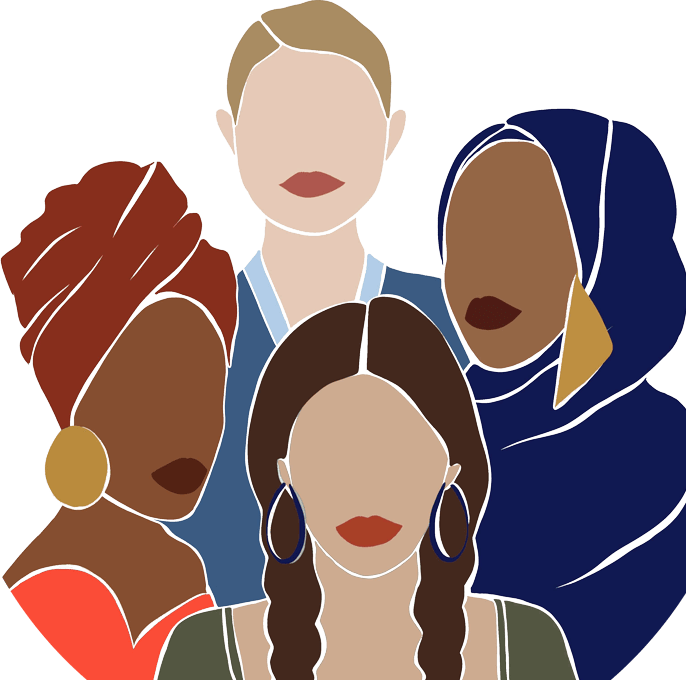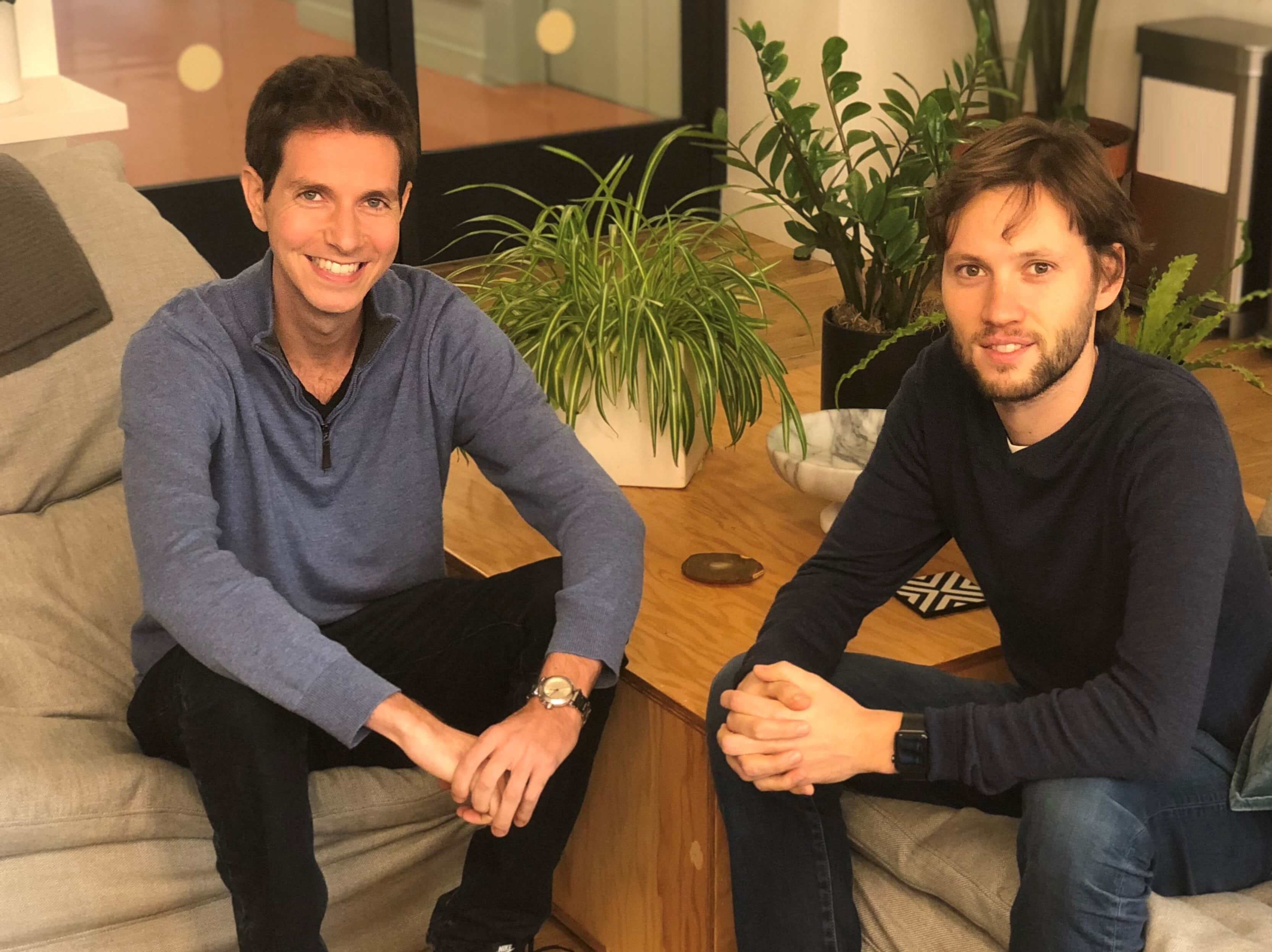Girls in Tech NYC recently sat down with the cofounders of Landis, a real estate technology company based in New York City. Cyril Berdugo and Tom Petit have made diversity and inclusion a central part of their company building efforts, their work aligning very closely with our own mission. Landis allows its customers to rent the home of their dreams for 12 months and then purchase it once they are ready to get a mortgage — it provides a leg up on the way to homeownership. It also provides tools and incentives for customers to improve their credit score and build up their down payment. Read our conversation below and check out more about Landis here.
Girls in Tech: Tell us about your story. How did you meet?
Cyril Berdugo and Tom Petit: We met at Stanford University. We both loved to play cards and would stay up late playing and reimagining the world. Graduation got closer, and it became clear that we should start a business together: We both wanted to prioritize learning and to have an impact on the world. As cofounders, we forgive each other’s mistakes, challenge each other, and bring together a team that shares our goal of improving people’s lives. We’ve never looked back.
GIT: How did you come up with the idea for Landis?
CB & TP: We knew we wanted to use our respective strengths to have a positive impact on the world. Cyril is a real estate and finance genius. Tom’s expertise is in data science and technology. We spoke to hundreds of people in the real estate tech space until we came to grasp the scale of the homeownership challenge in America. By our estimates, over 30 million households are stuck renting, when really, they want to own their house. This predominantly impacts more disadvantaged families, perpetuating income inequality and lack of opportunity for generations. That immediately felt like a challenge worth dedicating our lives to.
GIT: What is your technology ethos? How does the tech underpinning the business work?
CB & TP: Technology is at the heart of the company. It’s what allows us to quickly understand the unique situations of our clients, tailor our recommendations to their needs, and ultimately help millions of Americans become homeowners. But, contrary to many other tech companies, we refuse to imagine innovation at the cost of compassion. It’s not sufficient for us to know what precise steps a client can take to get to homeownership. To succeed in coaching them, we need to have deep empathy for the challenges that they are facing. We need to meet them where they are and “walk alongside them.”
So, we build technology that is both innovative and compassionate. This is a bigger challenge than any HackerRank question, but it’s also what makes our work so interesting and worthwhile. Thankfully, our engineering team, led by the wonderful Chris Kelley, is as thoughtful and caring as they are smart.
GIT: What does Diversity, Equity, and Inclusion (DEI) mean at Landis? Why is DEI important to you?
CB & TP: Diversity, equity, and inclusion are at the heart of how we work together. We know that in order to develop a solution to a problem no one has solved before, we not only need a team with diverse backgrounds, but also an environment where people feel welcomed and valued to bring their full self. What makes this even more important is the diversity of our clients: For instance, over half of Landis’ clients are women and a third are Black Americans.
At Landis, we’re particularly focused on giving everyone the space and the confidence to be themselves. Only when people leverage their diverse backgrounds to voice different opinions and challenge the status quo can we truly be successful.
GIT: What is your approach to hiring and creating a diverse team and environment?
CB & TP: We’ve seen first-hand that diversity doesn’t just happen naturally. It requires being intentional and purposeful as we build our team.
We have implemented systems and policies to overcome unconscious bias throughout the hiring process, starting with who applies. We quickly noticed that an overwhelming majority of our job candidates looked very similar to us. So, we diversified our outreach and expanded where we advertise job openings. To hold us accountable, we have adapted the Rooney Rule to our interview process. We won’t fill any position before having interviewed at least one under-represented candidate in the final round.
We have also developed clear evaluation criteria and rely on work samples to help counteract bias in the interview process. As a new company, we know we have a unique opportunity to get it right from the beginning and build a strong foundation for the diverse and inclusive organization we seek to create. Though it may not always be easy, especially in tech, we believe that it’s worth the extra effort.
We have an incredible team, but the work is never over. We’re always learning and seeking out more diverse perspectives to elevate our team.
GIT: What initiatives have you put in place to promote an inclusive workplace?
CB & TP: At Landis, we want everyone to be comfortable being exactly who they are. We don’t hesitate to highlight and discuss our differences — it’s what makes us stronger!
We noticed early on that our teammates had different ways of showing up for one another and of having fun together. So, we empower everyone to initiate team activities that feel true to them. One person’s loud rooftop beer pong party might be another person’s quiet chess game. Both have happened recently at Landis, and both are equally appreciated.
Last year, two teammates told us that Landis was the first place where they felt comfortable being openly gay professionally. This is the measure of our success: Whether we can be open and comfortable with who we are. That’s the community that we strive for.
GIT: How is Landis different from other real estate companies in NYC?
CB & TP: When you walk into our office, it’s immediately clear that we’re not your traditional NY real estate company. No suits, no cubicles. It’s all about the basketball hoops and the crazy brainstorming whiteboards.
More deeply, we at Landis think of real estate as a means to an end. We’re not building a real estate company; instead, we’re empowering people to become homeowners. Our cutting-edge technology is built for our clients, guiding them past financial hurdles to allow them to flourish. Homeownership leads to wealth and stability, and our goal is to help our clients get there.
GIT: How do you feel your mission aligns with organizations like Girls in Tech?
CB & TP: We’re very aligned with Girls in Tech in fighting for a more inclusive world. At Girls in Tech, you recognize that women in technology often face impossibly high hurdles. And yet, the tech world desperately needs more women. You are dedicated to helping women overcome those hurdles and to giving them a voice.
At Landis, we start by acknowledging that access to homeownership in America is deeply unequal. For instance, the NCRC published research showing that, “Black homeownership currently stands at just 45%, compared with White homeownership at 72%.” This trickles down into income and wealth inequality. It often becomes a burden carried across generations. Our mission is to help people overcome those hurdles to owning their home. The world we’re building is one where everyone has a path to homeownership, regardless of who they are, what they look like, and what circumstances they may have had to overcome.
If you haven’t joined Girls in Tech NYC yet, what are you waiting for? Sign up here for the latest from our community!
This post was written by Kate Drew, voluntary board member at Girls in Tech NYC.





